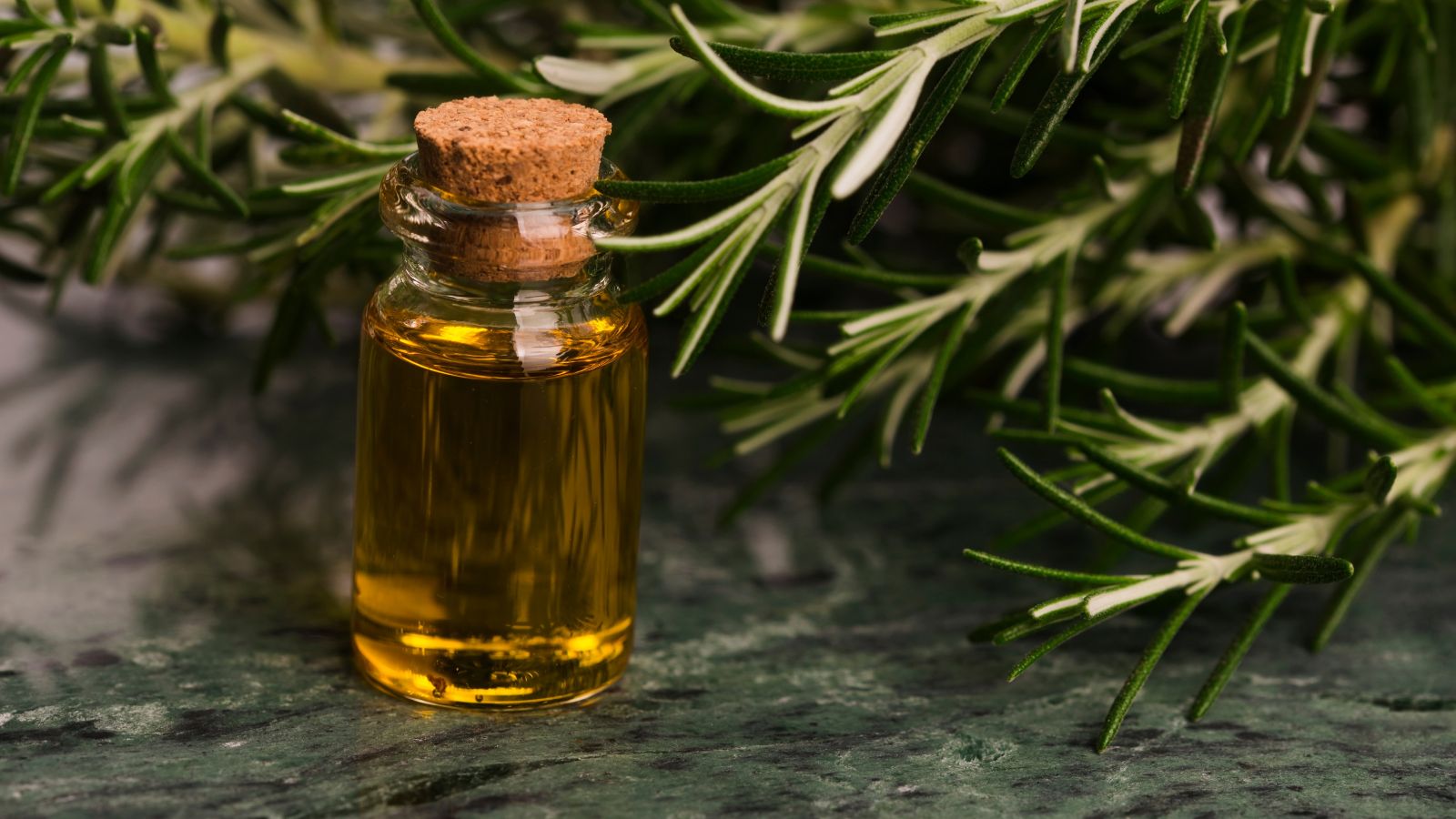
What Does Rosemary Taste Like? A Quick Guide for Everyday Cooking
Photo Credit: Canva Pro
Rosemary is a strong-smelling herb from the mint family (Lamiaceae), commonly used in Mediterranean cuisine. Its needle-like leaves have a woodsy, resinous flavor with pine-like undertones. The needle-like leaves taste like pine and are a little bitter. It is in the mint family.
Rosemary, both fresh and dried, can be used to season meats, sauces, and vegetables. This article talks about what rosemary tastes like, how to use it in cooking, and other herbs that can be used instead.
What Does Rosemary Taste Like?
Photo Credit: Canva Pro
Rosemary is one of the most popular herbs used in cooking, especially in Mediterranean dishes. It is a strong herb from the mint family that smells and tastes strong. Unlike other herbs, rosemary plants have needle-like leaves that taste woodsy and slightly bitter.
Breaking Down the Flavor Profile of Rosemary
Rosemary's unique flavor comes from its essential oils, notably 1,8-cineole and camphor, which contribute to its pine-like, slightly camphorous aroma.
-
Flavor profile: Earthy, pine-like, and slightly bitter with a minty aroma.
-
Aromatic compound: Contains 1,8-cineole (also found in bay leaves), which gives it a cooling, menthol-like effect.
-
Texture: Comes from needle-like leaves and woody stems that release oils when crushed or chopped
-
Versatility: Pairs well with roasted meats, vegetables, and even other herbs like fresh thyme and black pepper
Does Fresh or Dried Rosemary Taste Better?
Both kinds of rosemary taste strong, but how you use them makes a difference. For dishes that need to be made quickly or as a garnish, fresh rosemary is better. For recipes that need to be cooked longer, dried rosemary is better.
-
Fresh rosemary: Softer texture, more fragrant—great for seasoning roast chicken, roasted potatoes, and tomato sauce.
-
Dried rosemary: Stronger and woodier—best for stews, soups, or baked meats.
-
Cooking tip: Soak dried rosemary in olive oil or broth to soften it when the recipe calls for longer simmering.
-
Use in blends: Works well in herb blends like herbes de Provence or bouquet garni for Mediterranean-style flavor.
What Flavor Does Rosemary Add to Meat?
Photo Credit: Canva Pro
Rosemary is often paired with rich meats like lamb and pork, as its aromatic compounds can complement and cut through fatty flavors. It brings out the best in strong flavors and gives food more depth. When cooking lamb, beef, or oily fish, rosemary adds a fresh, earthy flavor that goes well with all of them.
Bold and Balanced – Why Rosemary Complements Rich Meats
Because it has a strong taste, rosemary goes well with hearty meat dishes. In addition to cutting through fat, it has a fresh, herbal flavor that goes well with meat.
-
Best pairings: Especially lamb, roast chicken, beef, and oily fish like salmon.
-
Flavor balance: Works with black pepper and fresh thyme for a savory finish.
-
Infused oils: Combine with olive oil to create marinades for roasted meats.
-
Roasting benefit: When roasted, both rosemary and meat flavors intensify in the oven.
Meat Pairing Tips and Cooking Applications
To get the most out of rosemary in meat dishes, you need to use it in the right way. The goal is to bring out the flavor without making the dish taste too strong.
-
For grilled meats: Rub chopped rosemary with olive oil and black pepper before grilling.
-
For roasting: Insert whole sprigs under meat or between veggies to infuse flavor.
-
For stews: Add dried rosemary early so it can release its strong oils over time.
-
For seasoning: Mix with other herbs like sage or use in herbes de Provence for complex herb blends.
What Tastes the Closest to Rosemary?
Photo Credit: Canva Pro
If you don't have rosemary on hand or would rather have a milder flavor, you can use a number of other fresh herbs that taste like rosemary. There is no exact substitute for rosemary's unique flavor, but some other herbs may work in some dishes.
Top 5 Fresh Rosemary Substitutes and Their Unique Notes
Other herbs, especially those used in savory dishes, can make food taste like rosemary. You can use these instead of rosemary when the recipe calls for it but you need something else.
-
Fresh thyme: Milder with an earthy and lemony flavor—great in soups and stews
-
Sage: Strong and peppery—perfect for roasted meats and stuffing.
-
Oregano: Slightly bitter and robust—ideal for tomato sauce and Mediterranean dishes.
-
Marjoram: Softer than oregano—best in vegetable dishes or slow-cooked meals.
-
Herbes de Provence: A French blend that includes rosemary, thyme, and other herbs—perfect for various dishes.
When and How to Use Substitutes Effectively
What you're cooking will determine what you can use instead of rosemary. Make changes to the taste and amount as you go so that you don't overpower the dish.
-
For roasted meats: Use sage or thyme when rosemary isn’t available.
-
For sauces: Choose oregano or marjoram to keep the Mediterranean feel.
-
For herb blends: Use herbes de Provence or bouquet garni in soups, meats, and stews.
-
Flavor balance: Combine substitutes with olive oil and black pepper to add depth.
Which Tastes Better, Thyme or Rosemary?
Photo Credit: Canva Pro
Herbs like thyme and rosemary are used in a lot of recipes from the Mediterranean, but they don't taste the same. Which one to use depends on the dish, how long you want it to cook, and the taste you want.
Flavor Comparison: Subtle vs. Bold
Thyme tastes more earthy and milder than rosemary, which tastes strong and like pine. Even though they are both mints, they cook in different ways.
-
Rosemary flavour: Strong, woody, slightly bitter, with pine like needles and wood like stems.
-
Thyme flavour: Milder and earthy, with a hint of lemon.
-
Cooking role: Rosemary stands out in dishes, thyme blends in easily.
-
Texture difference: Rosemary has thick needles, thyme has soft, small leaves.
When to Choose One Over the Other
Choose your herb based on what you're cooking. To go with rich meats and long cooking times, rosemary is best. Thyme, on the other hand, goes well with lighter foods and quick recipes.
-
Best for rosemary: Pork, roast chicken, lamb, and especially oily fish.
-
Best for thyme: Garlic-based sauces, soups, and other poultry.
-
Use together: Mix in herb blends like herbes de Provence for balanced flavour.
-
Cooking time tip: Rosemary holds up better in slow-cooked meals than thyme.
How FullyHealthy Helps You Choose the Right Rosemary Product
FullyHealthy is a reliable store that sells organic herbs of high quality, such as rosemary. It sells foods that are good for certain diets and make cooking easier without sacrificing taste.
Simply Organic Rosemary – Whole Leaf for Full Flavor
The site sells Rosemary Whole Leaf (salvia rosmarinus) from Simply Organic, which is great for seasoning foods that need a lot of flavor. When cooking meat or things that take a long time, this type of Rosmarinus officinalis works best.
-
Product name: Simply Organic Rosemary Whole Leaf (1.23 oz).
-
Great for: Roasted meats, pork, stews, and Mediterranean dishes.
-
Quality check: Organic, AIP-compliant, non-irradiated.
-
Cooking advice: Add early in the recipe to bring out the strong flavour during longer cooking.
Add Depth with Herbes de Provence and Italian Seasoning
That's not all; FullyHealthy also sells herb blends with rosemary and other herbs like oregano and thyme. It's easy to season food quickly and taste great with these mixes.
-
Includes rosemary: Found in Herbes de Provence and Italian Seasoning.
-
Rosemary pairs well with: Garlic, thyme, and sage for full-bodied flavour.
-
Best used in: Roasted meats, soups, sauces, and grilled veggies.
-
Bonus benefit: Rosemary has been used in traditional medicine for digestive support, though more clinical studies are needed to substantiate these effects.
Final Thoughts
Rosemary is a strong herb that has been used in cooking and medicine for a long time. Some people like its strong taste and pine-like smell. It gives meats, vegetables, and sauces more depth. Sage, parsley, and garlic go well with rosemary, whether it's fresh or dried. Other herbs like thyme and sage also go well with rosemary.
Because it stays good for a long time, it's great for roasting foods like pork, lamb, or oily fish. Rosemary is also good in herb blends like herbes de Provence. It makes soups, sauces, and even some foods like spinach and mushrooms taste better.
Rosmary is a must-have if you're making a spice rack or just want to try new tastes. Rosemary is a widely used and recognizable herb in many culinary traditions, particularly Mediterranean cuisine. It has a unique flavor and is good for you.
FAQs
Can I use rosemary with other foods like mushrooms or spinach?
Yes, rosemary works well with mushrooms, spinach, and other foods when you want an earthy, strong flavour.
What is the history of rosemary in cooking?
Rosemary has a long history in cooking and traditional medicine, especially in the Mediterranean region.
Can I mix rosemary with parsley in recipes?
Yes, parsley adds a fresh note while rosemary gives boldness. They balance each other well in many dishes.
Does rosemary go well with spices?
Rosemary pairs well with spices like black pepper, garlic, and even with milder herbs like thyme or sage.
What dishes can I use rosemary in besides meat?
You can use rosemary in tomato sauce, soups, with spinach, mushrooms, and in vegetable or parsley-based sides.

Leave a comment